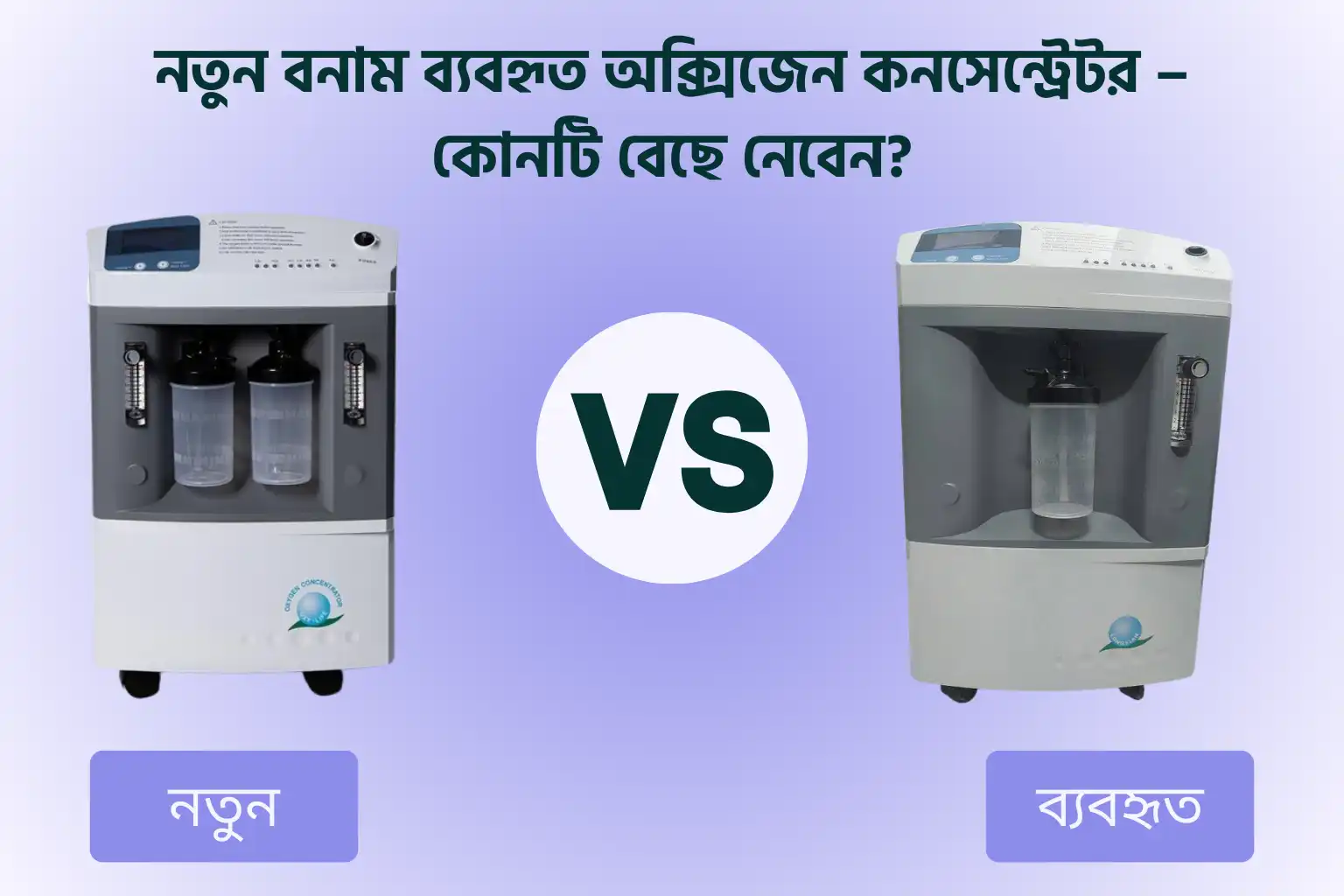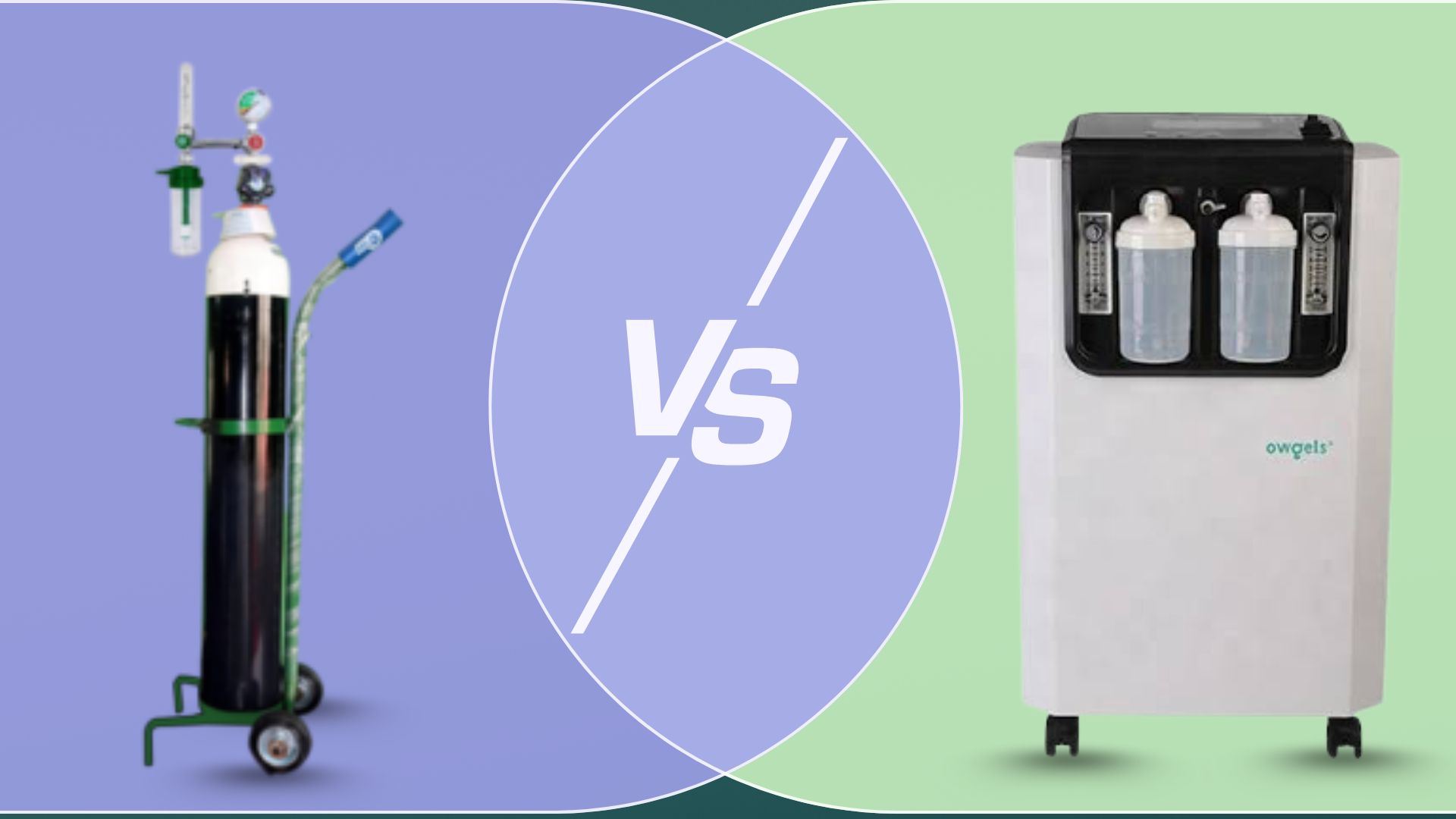

If you or a loved one in Bangladesh requires oxygen therapy, you’ll likely encounter two main options for oxygen delivery: oxygen concentrators and oxygen cylinders. While both serve the purpose of supplying medical oxygen, they operate very differently and have distinct advantages and disadvantages. Understanding these differences is crucial for making an informed decision that best suits your medical needs, lifestyle, and circumstances.
At BDMEDI, we are committed to helping you navigate these choices. Let’s break down the key distinctions between an oxygen concentrator and an oxygen cylinder.
An oxygen concentrator is an electrically powered medical device that draws in ambient air from the room, filters out nitrogen and other gases, and delivers concentrated oxygen to the patient.
An oxygen cylinder (also known as an oxygen tank) is a metal container that stores a finite amount of compressed medical-grade oxygen gas under high pressure.
| Feature | Oxygen Concentrator | Oxygen Cylinder |
|---|---|---|
| Oxygen Source | Draws in ambient air; produces its own oxygen. | Stores a finite amount of pre-filled, compressed oxygen. |
| Supply Duration | Continuous, unlimited supply with a power source. | Limited supply; depletes with use and needs refilling. |
| Portability | Home units are larger; portable units are designed for travel & are lightweight. | Varies by size; smaller cylinders are highly portable but offer less supply. |
| Upfront Cost | Generally higher. | Generally lower. |
| Operational Cost | Primarily electricity costs; relatively low. | Ongoing costs for refilling. |
| Maintenance | Regular cleaning of filters; sieve bed replacement after long use. | Refilling; valve checks; periodic hydrostatic testing. |
| Oxygen Purity | Typically 90-96%. | Medical grade, usually 99% or higher. |
| Power Dependency | Requires electricity (for home units) or battery power (for portables). | No external power source needed for operation. |
| Noise Level | Produces some operational noise (humming/whirring). | Silent, except for a slight hiss from the regulator. |
| Safety & Handling | No pressurized content; reliance on power. Fire risk if oxygen-enriched environment is created. | Contains high-pressure gas; requires careful handling and storage to prevent leaks or damage. Fire risk. |
| Weight | Home units can be bulky. Portables are light (2-8 kg approx.). | Can be heavy, especially larger tanks. Smaller ones are lighter. |
Export to Sheets
Choosing between an oxygen concentrator and an oxygen cylinder depends on several factors specific to your situation in Bangladesh:
Both oxygen concentrators and oxygen cylinders are valuable tools in oxygen therapy, each with its unique set of pros and cons. The best choice for you or your loved one in Bangladesh will depend on individual medical requirements, lifestyle, and local conditions.
It’s vital to discuss your needs with your healthcare provider. At BDMEDI, we offer a range of new and refurbished oxygen concentrators for sale and rent, as well as guidance to help you select the most appropriate oxygen solution. Our team is dedicated to ensuring you have the right equipment and knowledge for effective and safe oxygen therapy.
Disclaimer: This blog post is for informational purposes only and should not be considered medical advice. Always consult with a qualified healthcare professional for any health concerns or before making any decisions related to your health or treatment.
We use cookies to enhance your browsing experience, serve personalized ads or content, and analyze our traffic. By clicking "Accept All", you consent to our use of cookies.
ইমার্জেন্সি মুহূর্তে ইন্টারনেটে নম্বর খোঁজার সময় পাবেন না। অন্তত আমাদের নম্বরটি সেভ করে রাখুন, বিপদে কাজে আসবে।